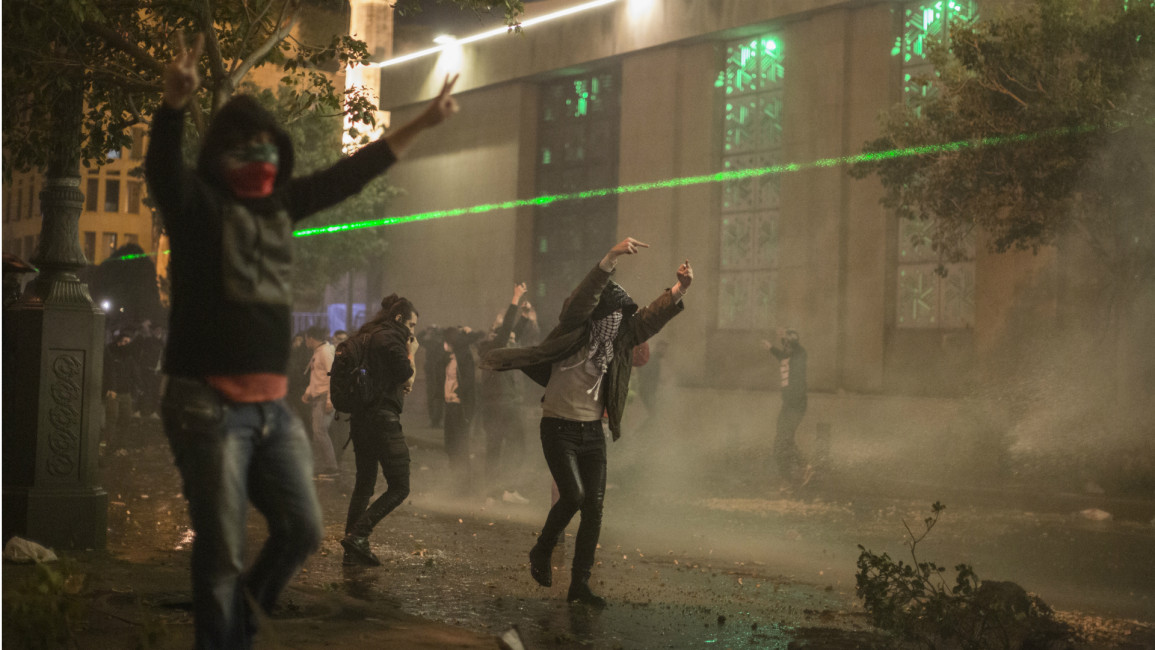Amnesty calls for independent investigation over 'alarming' use of force against Lebanon protesters
Those found to have used force unlawfully, including brutally beating protesters and relentlessly using teargas, must be brought to account through criminal or disciplinary proceedings, the rights group said.
"Since the beginning of the protests almost two months ago, security forces have resorted to unnecessary and excessive force against peaceful protesters on a number of occasions," said Lynn Maalouf, Amnesty International's Middle East director of research.
"But the unprovoked crackdown we witnessed on Saturday is by far the most virulent we have seen so far."
Security forces clashed with a group of largely peaceful protesters in Beirut on Saturday, hours after Lebanon's president postponed talks on naming a new prime minister and further prolonging the turmoil and unrest in the Mediterranean country.
Lebanese security forces repeatedly fired tear gas, rubber bullets and water cannons to disperse hundreds of protesters in downtown Beirut in the worst violence since demonstrations against the political elite erupted in mid-October.
Twitter Post
|
The Lebanese Caretaker Interior Minister Raya Al-Hassan had urged peaceful protesters to leave the area "for their own protection".
Al-Hassan also announced an internal "rapid and transparent" investigation into Saturday's violence, but Amnesty has called for an independent investigation.
"While the caretaker minister of interior has announced an internal investigation, only an independent criminal investigation by the Public Prosecution can deter future excessive use of force," Maalouf said.
"Otherwise protesters will continue to be unsafe on the streets."
According to Amnesty International's weapons expert, images of teargas cannisters found on Saturday were 56mm CM4 tear gas grenades manufactured by the French company SAE Alsetex in October 2007.
The Lebanese Red Cross said it treated 33 cases in the field and transported 10 injured people to hospitals on Saturday night, according to Amnesty.
Cases treated in the field included short breath, vomiting and coughing due to exposure to teargas, the group added.
The Lebanese Civil Defense said it had treated 72 people for injuries at the scene and taken 20 others to hospital.
The types of injuries described by doctors treating injured protesters in nearby hospital were mainly the result of beatings, and included bruises, broken teeth, and cuts that required stitches.
Parliamentary police also dragged a number of protesters inside the square behind the barriers and subjected them to beatings, insults and threats, Amnesty said citing injured protesters.
One injured protester described to Amnesty International how he was protecting other protesters from beatings, when he was taken by riot police behind the barriers.
They tied his hands behind his back and beat him for a period of around 20 minutes until he was unable to stand up.
He said "they were beating me there behind the barriers. It’s like Guantanamo inside the Nejmeh Square".
Demonstrators in Lebanon have rocked the country since 17 October, with protesters calling for a complete overhaul of a political class they accuse of being incompetent and corrupt.
Follow us on Twitter and Instagram to stay connected



